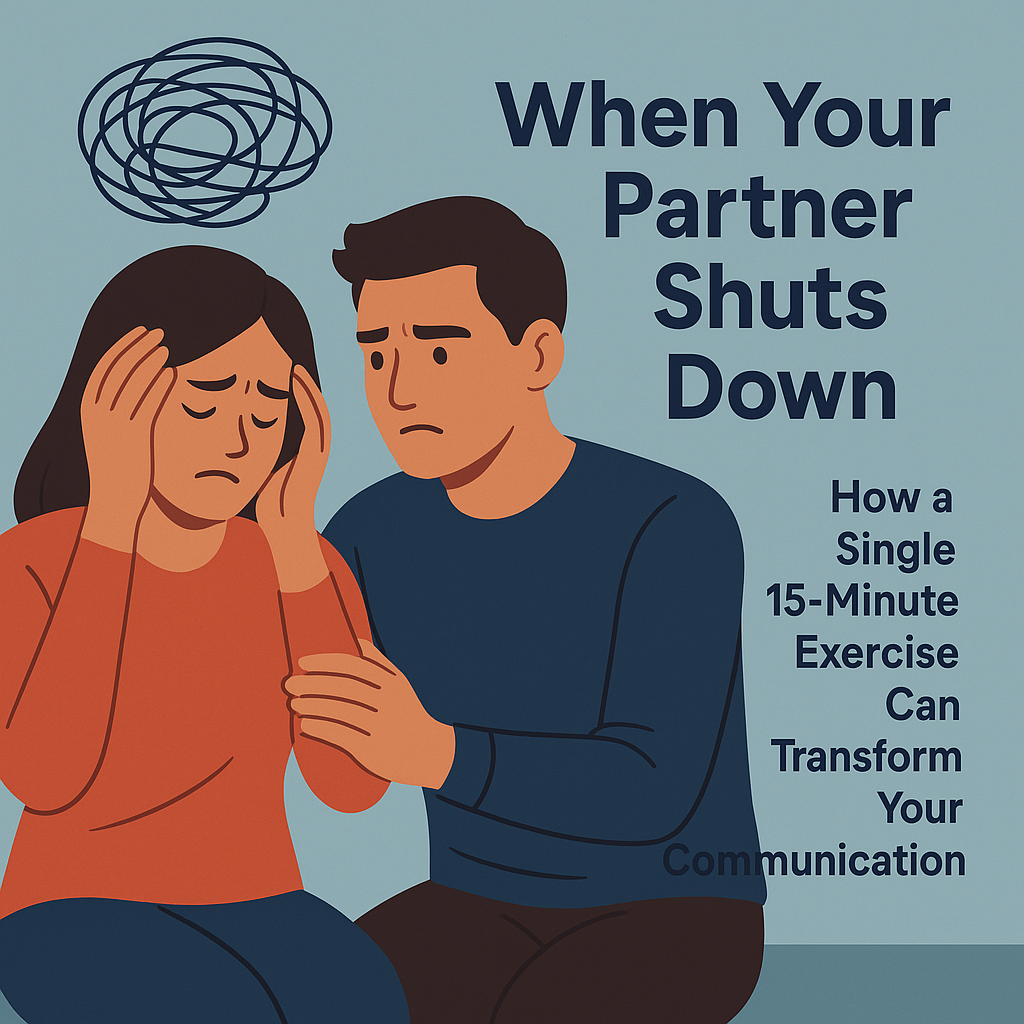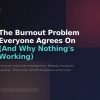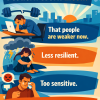
My Manager Goes Silent When I Need Answers Most
Look, I need to tell you about this thing that happened last Tuesday at 4:47 PM.
I'm standing outside my manager's office, project brief in hand, and she's just... staring at her monitor. Not typing. Not clicking. Just staring.
"Hey Sarah, quick question about the deadline—"
Nothing. Like I'm invisible.
Twenty minutes later she messages me: "Sorry, was processing. What did you need?"
Processing? PROCESSING? I've been stress-eating pretzels for three days about this deadline and she was "processing"?
What's Actually Happening (Spoiler: It's Not You)
So I went down this rabbit hole trying to figure out why every manager I've ever had does this. Found out there's this thing called emotional flooding. Basically when the brain gets overloaded, it just... stops. Like when my laptop has too many Chrome tabs open and the fan starts screaming.
I discovered this through Emergent Skills's Stress Mastery thing after my fourth manager in two years started doing the same disappearing act. Either I'm cursed or this is way more common than anyone admits.
The wild part: when someone shuts down in conversation, their heart rate apparently spikes past 100 BPM. Their prefrontal cortex (the smart part) literally goes offline. They're not ignoring you—their brain is having a moment.
Which would've been nice to know before I spent six months thinking Janet from accounting hated me.
The Spiral This Causes
You know what's fun? Lying awake wondering if your manager hates your work because they went silent during your progress update. Then spending the next day reading "body language expert" articles. Did you know crossed arms can mean 47 different things? Neither did I until my anxiety made me an expert.
Actually, that's not fun at all. That's terrible.
The worst part is how it spreads. Manager shuts down, I panic, then I start avoiding them, then they think I'm disengaged, everyone's stressed, nobody talks about it. It's like this weird workplace disease that nobody admits they have.
I read somewhere that workplace stress costs like... okay I can't remember the exact number but it was in the trillions. With a T. Found it - $8.8 trillion from disengagement. That's a lot of stressed-out people pretending everything's fine.
What Actually Helps
So there's this 2-Minute Reframe technique I learned. Can't explain it perfectly—there's some specific reset thing you do. But I figured out some stuff on my own that helps:
My Totally Scientific Early Warning System
Started noticing patterns. My manager always does this thing with her glasses—takes them off, cleans them, puts them back on—right before she zones out. Once I spotted that, everything changed.
Now when I see the glasses move:
- Wrap up whatever I'm saying FAST
- Mumble something about sending an email
- Get out before the awkward silence kills us both
Is this professional? Probably not. Does it work? Mostly.
Oh, and there's this phrase I practiced: "I can see you're processing a lot right now. Should I circle back later?"
I practiced it with the AI coach at 2 AM because I couldn't sleep anyway. Set it to "overwhelmed authority figure mode" which was... yeah. Too real. But now I can actually say it without sounding like I'm reading from a self-help book. Usually.
Why This Is Everyone's Problem
Here's what messed me up: finding out managers who shut down usually feel as bad as we do. They're not power-tripping—they're drowning. That hit different when I realized it.
But the ripple effect is real. I've watched entire teams fall apart because of this dynamic. Manager shuts down, team gets anxious, nobody brings up problems, small issues become disasters, someone eventually loses it in a Slack channel at 11 PM on a Friday.
Not that I've done that. Much.
The Thing That Actually Changed How I Deal
Last week my manager went full shutdown during budget discussions. Old me would've spent the weekend convinced I was getting laid off. New me sent a follow-up email (rambling), and only checked my phone 12 times before bed instead of 50.
Progress?
What to Do Tomorrow (Or Tonight at 3 AM)
If your manager regularly shuts down:
Stop assuming it's about you
Seriously it almost never is. Unless you just told them you lost the biggest client. Then maybe.
Notice their patterns
Everyone has tells. Mine scratches her ear. Dave from IT cracks his knuckles. Lisa just... actually I have no idea what Lisa's tell is. She's a mystery.
Learn one technique that works
Something that stops the spiral before it starts
Practice on AI first
Less awkward than... well, you know what, sometimes real conversations are easier. Depends on the day.
The Emergent Skills session takes 30 minutes. I've spent longer than that reading one Twitter thread about whether open offices are evil (they are).
The Bottom Line
Your manager going silent isn't the end of your career. It's just a stress response. With the right skills, you can handle it without losing sleep or your sanity.
Will it fix everything? No. Will your manager suddenly become amazing at communication? Also no. Will you stop catastrophizing at 3 in the morning?
Maybe. Probably. Sometimes.
But even "sometimes" is better than "never," right?
P.S. - My manager just walked past my desk, saw me typing furiously, and did the glasses thing. She's cleaning them now. Okay I'm out.
Ready to Handle Workplace Stress Without Losing It?
Learn the techniques that actually work when your manager goes silent.









